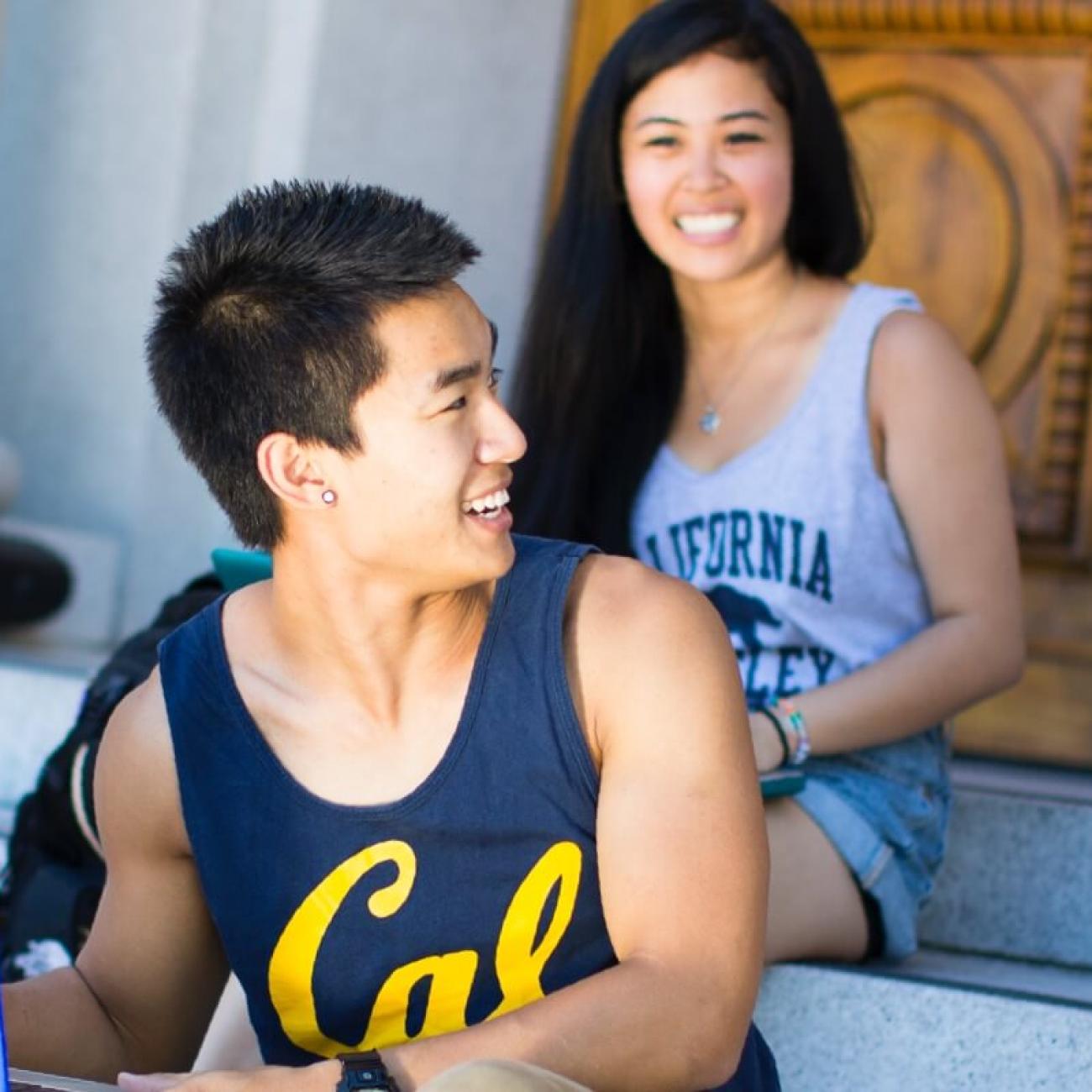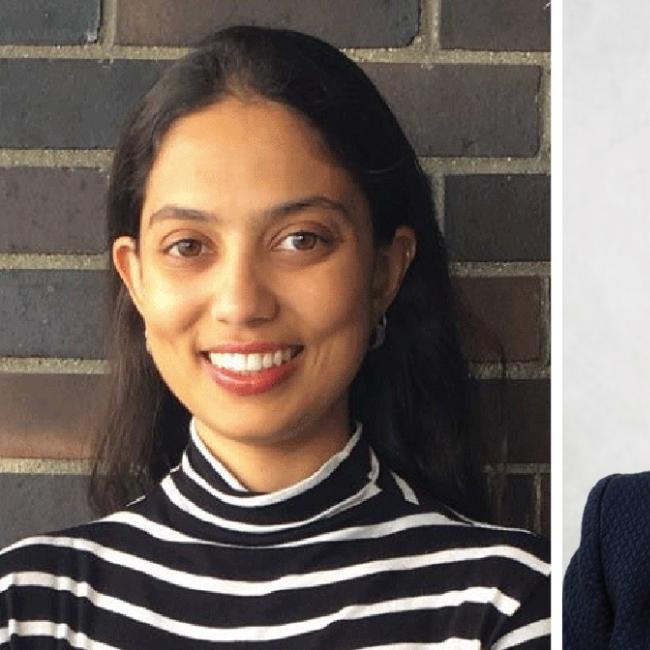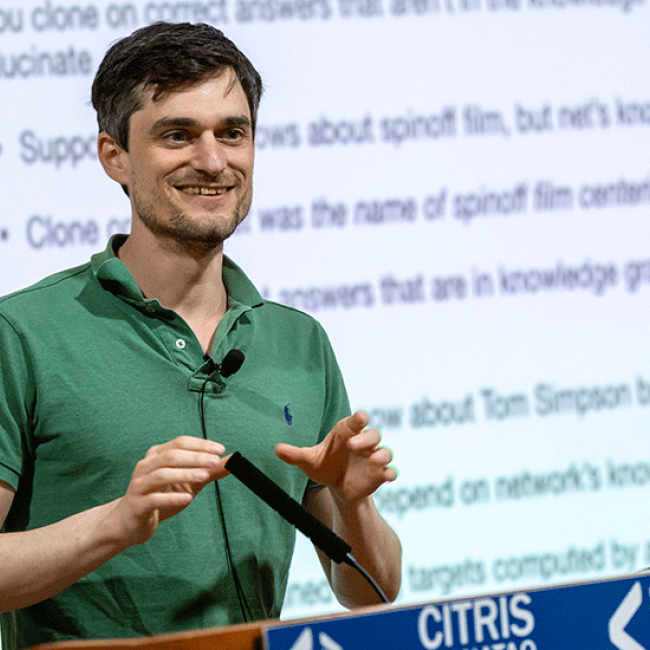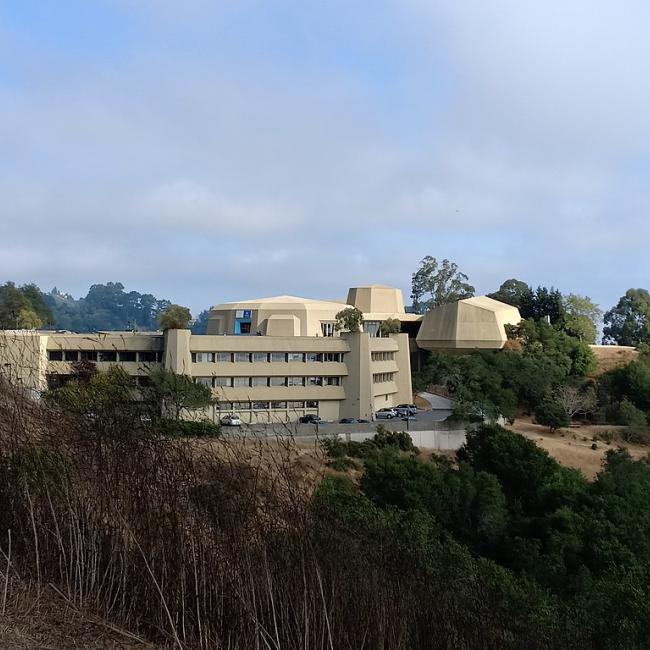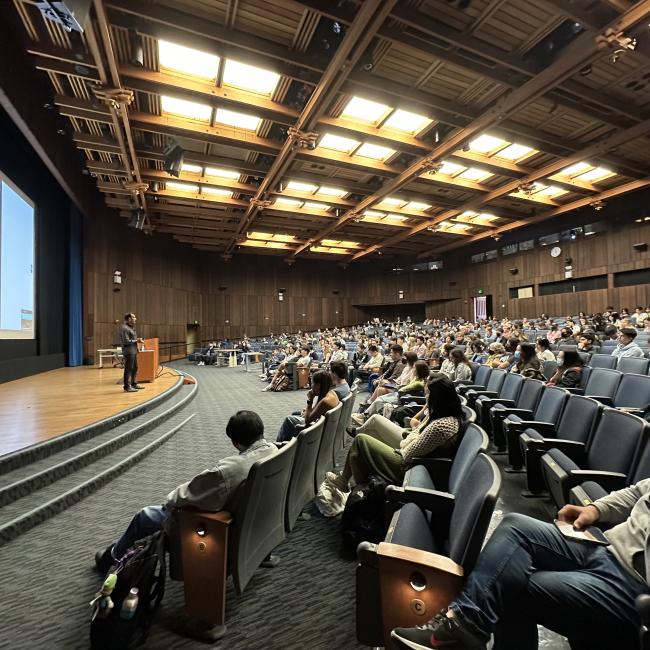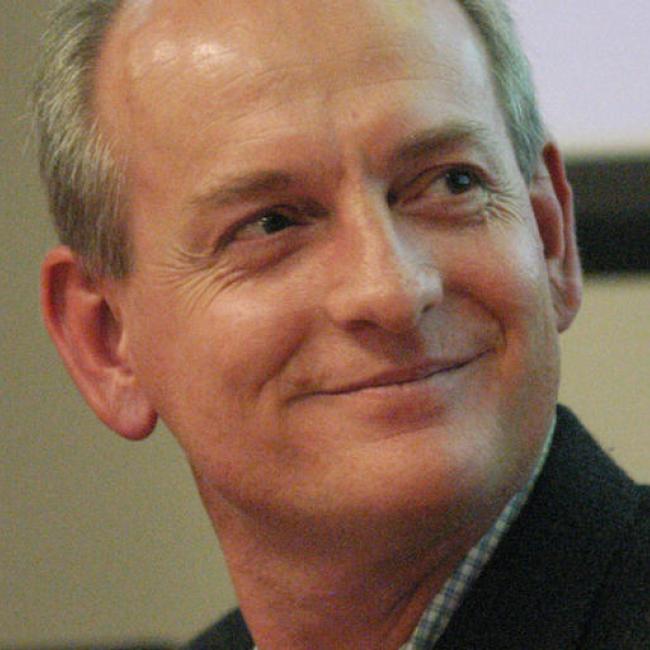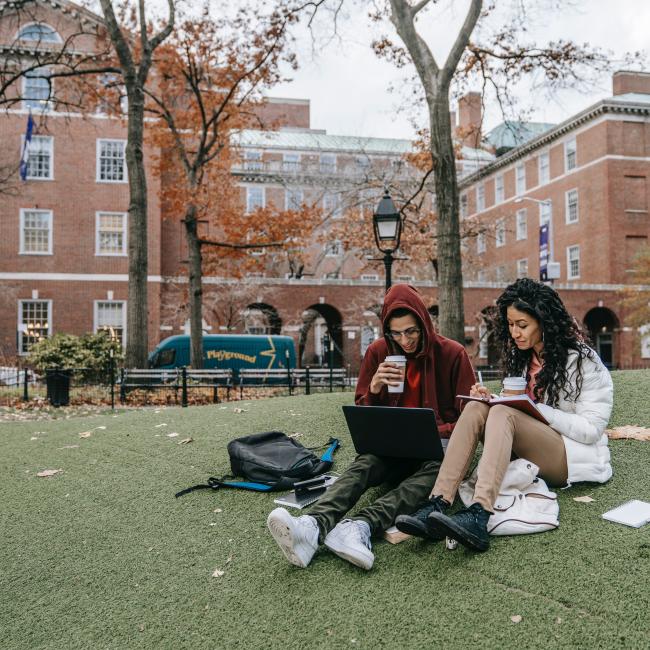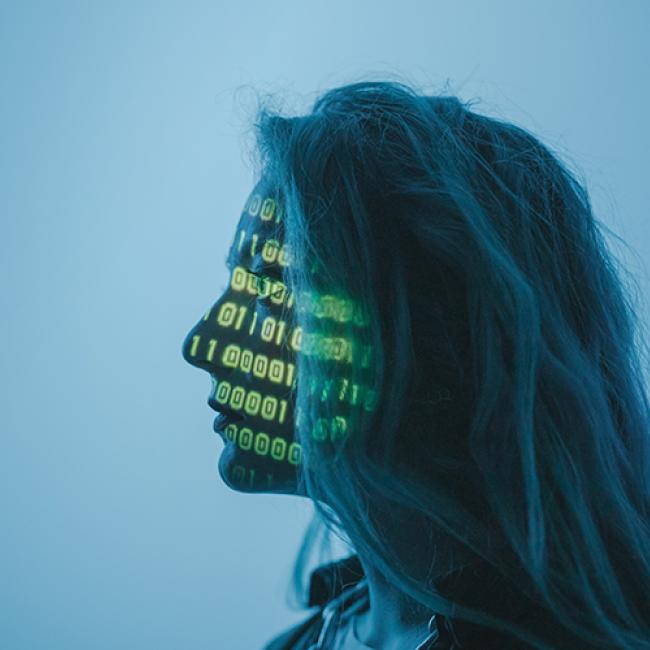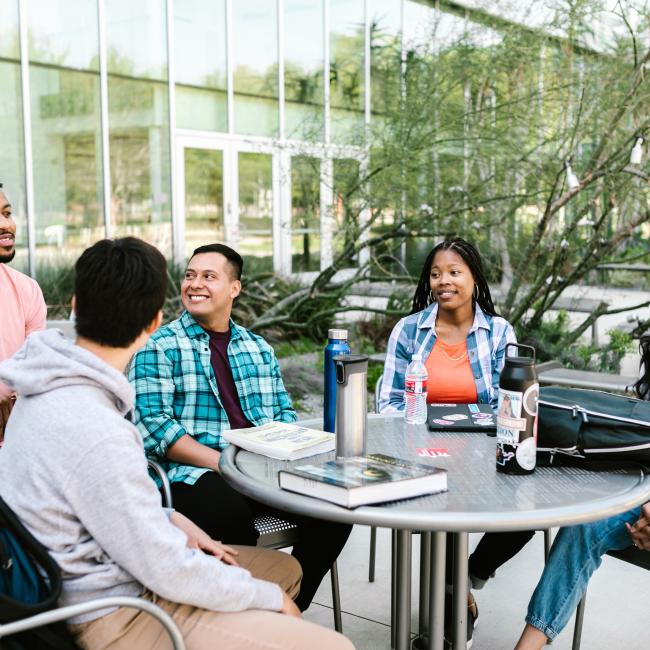Two EECS professors recognized with NSF CAREER Awards
College of Engineering: The National Science Foundation (NSF) recognized electrical engineering and computer sciences assistant professors Yakun Sophia Shao and Gireeja Ranade with Faculty Early Career Development (CAREER) awards. The awards are part of NSF’s prestigious Faculty Early Career Development (CAREER) Program, which supports early-career faculty “who have the potential to serve as academic role models” and to become leaders in their field, according to the NSF website. They are among the agency’s most competitive honors.
How art history and statistics helped a graduating student understand herself
When Alice Xie moved from China to California as a teenager, she experienced major culture shock. She understood the words people spoke, but conversations were still hard to follow. She often felt isolated and underestimated. Through art, Xie found a way to explore and communicate about this period in her life. So it was no surprise when she came to UC Berkeley and became an art history major. What caught her off-guard was that her other major – statistics – helped her understand herself, too. “How stats [statistics] works is just how our brain works,” said Xie, remembering the moment her sophomore year this idea clicked. “We receive the data – the information – from all over the place. We process them in our mind and the mind is like a ‘layer’ – a gateway or a hole. Then we create our own interpretation and knowledge and reflect back to us or to the world.” After this realization, Xie said, she felt “relief and also clarity in how I think about myself and my work in so many aspects.”
Safe drinking water is a right. Experts want AI to help make it a reality.
Safe, clean and affordable drinking water is a human right in California. But making that legal requirement a reality is a difficult challenge exacerbated further by climate change. Two water engineers believe artificial intelligence can help. Working with UC Berkeley’s Data Science Discovery program students, they are building a chatbot they hope will help California Water Resources Board staff discern, communicate and enforce rules to ensure the public’s water is safe to drink.
ChatGPT architect, Berkeley alum John Schulman on his journey with AI
Berkeley News: John Schulman cofounded the ambitious software company OpenAI in December 2015, shortly before finishing his Ph.D. in electrical engineering and computer sciences at UC Berkeley. At OpenAI, he led the reinforcement learning team that developed ChatGPT — a chatbot based on the company’s generative pre-trained (GPT) language models — which has become a global sensation, thanks to its ability to generate remarkably human-like responses. During a recent campus visit, Berkeley News spoke with Schulman about why he chose Berkeley for graduate school, the allure of towel-folding robots, and what he sees for the future of artificial general intelligence.
Kimiko Ryokai and team awarded $1.29M to center Indigenous youth in museum spaces
School of Information: Nestled atop the sprawling Berkeley hills and on the ancestral land of the Chochenyo Ohlone stands the Lawrence Hall of Science, a place of scientific discovery and exploration. With opportunities to get up close and personal with animals, build and test inventions, and watch engaging 3D films, the Lawrence offers youth a chance to explore their STEM-related interests. However, one of the many groups that have historically been underrepresented in museum spaces, including the Lawrence Hall of Science, are Indigenous groups. In fact, Indigenous sciences, which is characterized by an engagement with one’s location, embodied cognition, and intergenerational knowledge, is often considered at odds with Western science. A group of researchers, including the I School’s own Professor Kimiko Ryokai, recently received a grant of $1.29M from the National Science Foundation (NSF) to tackle this challenge.
DJ Patil calls data scientists ‘a new kind of first responder’
On March 14, 2020, the United States was on the brink of a pandemic. Covid-19 had killed at least 60 people and two cruise ships with ill passengers were set to dock in San Francisco. That’s when DJ Patil received a call: How can data help California combat this? So the former White House chief data scientist put together a plan. His team acquired hospital and community data, developed surveys, models, dashboards and data catalogs, and used those tools and insights to inform public officials across the state and the country. “All of this came together in this effort to really take on Covid,” said Patil, who is now a general partner at GreatPoint Ventures, at an April 10 UC Berkeley lecture on the foundations of data science. “Data science made a massive impact in – not just the nation – but the world.”
Stuart Russell calls for new approach for AI, a ‘civilization-ending’ technology
Technology companies are racing to release increasingly powerful artificial intelligence (AI) tools. Some researchers claim this technology exhibits artificial general intelligence (AGI), a significant milestone where AI could independently learn and complete tasks like human beings. This technology has the power to change the world, said Stuart Russell, a UC Berkeley computer science professor and leading AI expert. It could improve quality of life for people across the planet or destroy civilization, he said. At an April 5 CITRIS Research Exchange and Berkeley AI Research Lab event, he urged both companies to pivot how they’re building AI and countries to regulate AI to ensure it furthers human interests.
Tool helps experts, students assess ethics of data science work in society
Data science has unlocked new potential to help understand and address challenges like human health and climate change. But it can be challenging to know how to work ethically with data, especially when it has major impacts on society. Enter the Data Science Ethos tool by the Academic Data Science Alliance (ADSA). The alliance’s package of research-backed guidance and case studies show how to embed ethics into the lifecycle of data-driven projects. Students and experts can follow this framework to assess the effects of their choices at each stage of their work, from framing their research questions to interpreting and sharing their work.
From tort law to cheating, what is ChatGPT’s future in higher education?
Berkeley News: It passed the bar exam, first with a mediocre score and then with a ranking among the top tier of newly minted lawyers. It scored better than 90% of SAT takers. It nearly aced the verbal section of the GRE — though it has room for improvement with AP Composition. In the months since the machine-learning interface ChatGPT debuted, hundreds of headlines and hot-takes have whirled about how artificial intelligence will overhaul everything from health care and business to legal affairs and shopping. But when it comes to higher education, reviews have been more mixed, a blend of upbeat and uneasy. Many have forecast the “death of the college essay,” though it’s still very much alive.
CDSS seeks undergraduate student nominations for new advisory committee
UC Berkeley’s Division of Computing, Data Science, and Society (CDSS) is seeking undergraduate students to join a new advisory committee, the division announced today. The CDSS Undergraduate Advisory Committee will offer recommendations to the division on its operations, as it works to become the first new college at Berkeley in more than 50 years. Undergraduate student nominations, including self-nominations, are invited by April 11. “As we look forward to becoming a college, we welcome the opportunity to hear from students whose perspectives and ideas on the issues and services they care about will help build a stronger CDSS and campus community,” said Jennifer Chayes, associate provost of CDSS.

